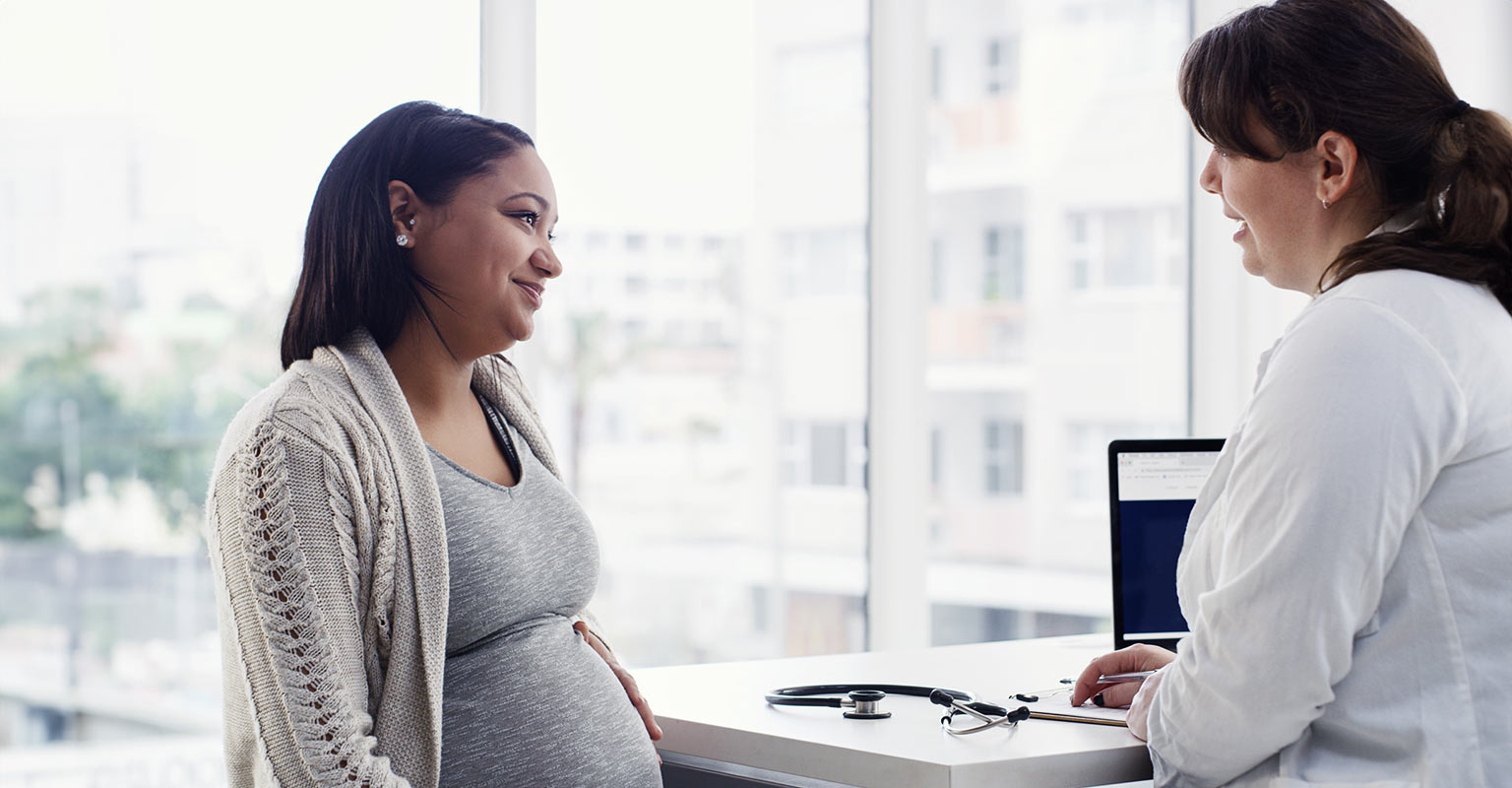Throughout your pregnancy, you can expect routine prenatal checkups to monitor you and your baby’s health. It is important for understanding possible genetic disorders. Discuss testing and recommendations with your healthcare provider.
Here’s what to expect during your second trimester prenatal visits, including testing and how to understand the results.
Prenatal testing during the second trimester
(NIPS/NIPT) Noninvasive Prenatal Screening: This voluntary blood test can be performed at any point during pregnancy but is generally performed between 10-13 weeks, just before your second trimester. NIPT measures several hormones produced during pregnancy. It calculates the potential risk for Down syndrome, Trisomy 13, and 18. NIPT also assesses the gender of your baby. If there is an abnormal result, you may be referred to Maternal Fetal Medicine specialist for genetic counseling and an ultrasound.
Anatomy Ultrasound: During 18 to 22 weeks, an ultrasound screening for abnormalities in fetal body structure is usually performed. The ultrasound will be used to take images inside your uterus to make sure the baby is growing normally. You may also learn the sex of your baby. The ultrasound will look at:
- Heart
- Brain, neck and spine
- Kidneys and bladder
- Arms and legs
- Hands, fingers, feet and toes
- Lips, chin, nose, eyes and face
- Chest and lungs
- Stomach and intestines
The ultrasound technician will also:
- Listen to the fetal heart rate for abnormal rhythms
- Check the umbilical cord for blood flow and where it attaches to the placenta
- Look at the placenta to make sure it’s not covering your cervix (placenta previa)
- Check your uterus, ovaries and cervix
- Measure the amount of amniotic fluid
If any abnormalities are found, you may be referred to a Maternal Fetal Medicine specialist with the goal of providing the best outcome for you and your baby.
Glucose challenge test (GCT): During 24 to 28 weeks, you will typically have screening for gestational diabetes, or diabetes during pregnancy. Identifying and treating gestational diabetes is important. It can lead to larger babies, difficulty during delivery, C-sections, stillbirth, high blood pressure and an increased risk of developing type 2 diabetes after pregnancy.
Typically, you will be asked to drink a specifically prescribed sugary liquid. Your blood sugar will be checked one hour later. If you have a blood sugar of greater than 140, you’ll then be asked to return another day for a three-hour glucose test. This test is called a Glucose Tolerance Test. This test includes checking your fasting blood sugar and then drinking a prescribed glucose drink. Your sugars are then checked one hour later, two hours later, and three hours later.
If two or more of your readings come back abnormal, you’ll be diagnosed with gestational diabetes. Your healthcare provider will speak to you about a treatment plan, and how to adjust your diet and activity. Some women may require medications to help treat their diabetes, which are safe in pregnancy.
Remember to speak to your healthcare provider if you have any questions or concerns about testing.
Please note this content is for informational purposes and is not intended as a substitute for medical advice. Please consult with your healthcare provider about your specific journey.
